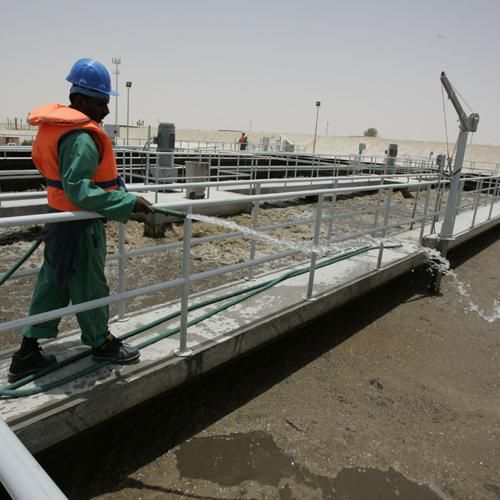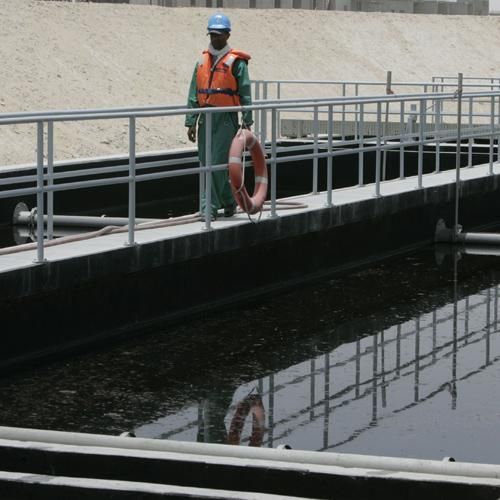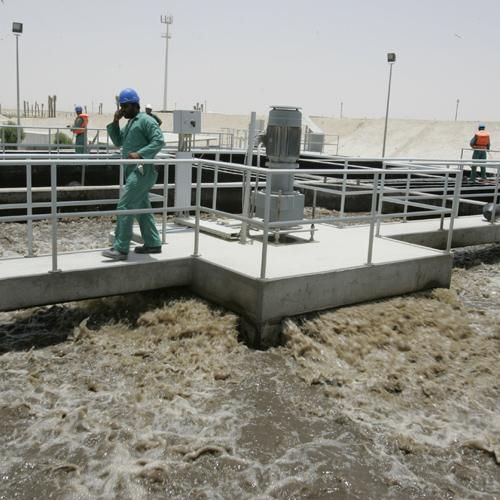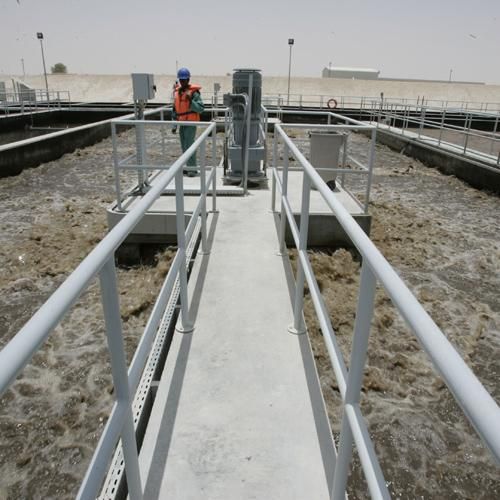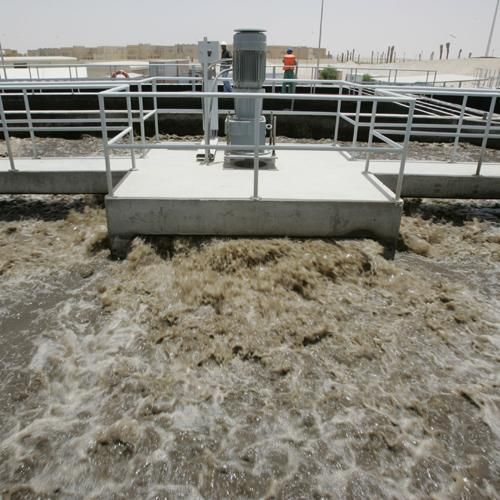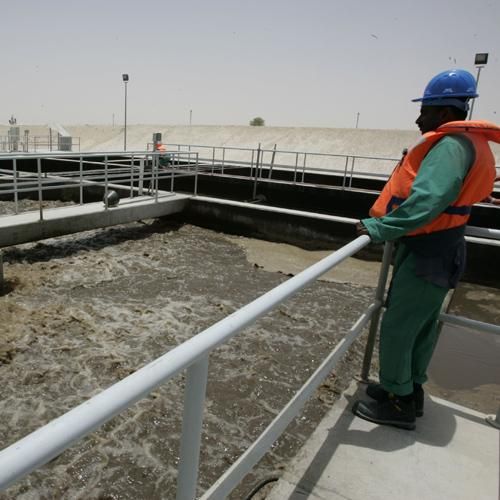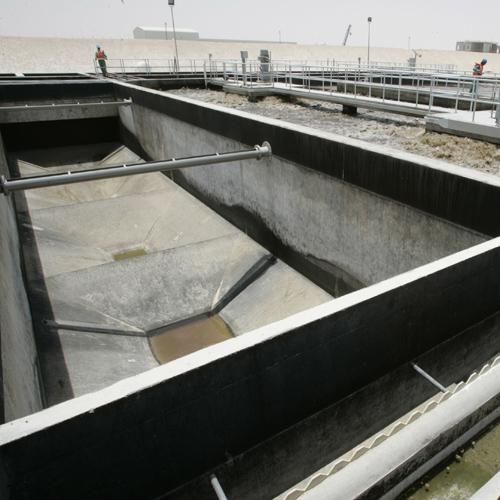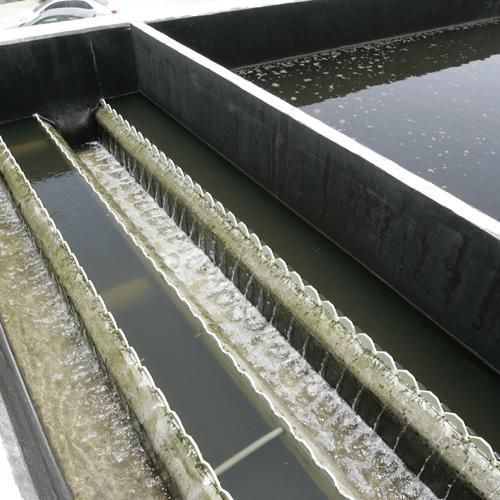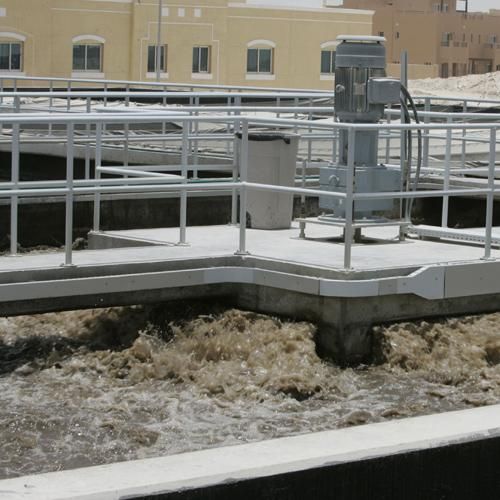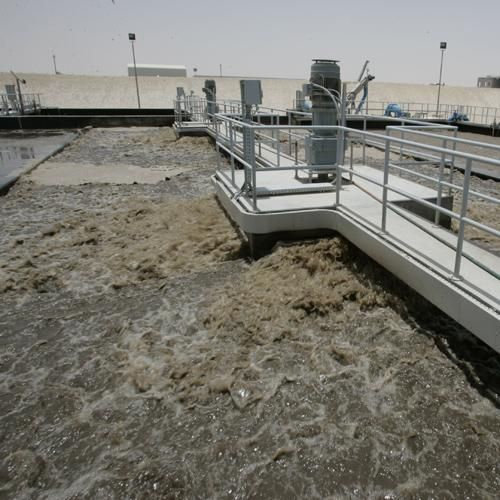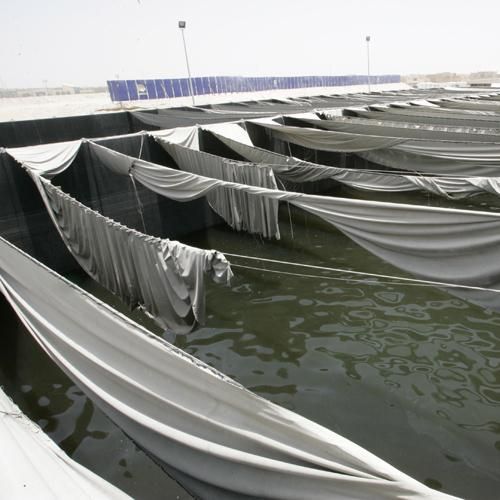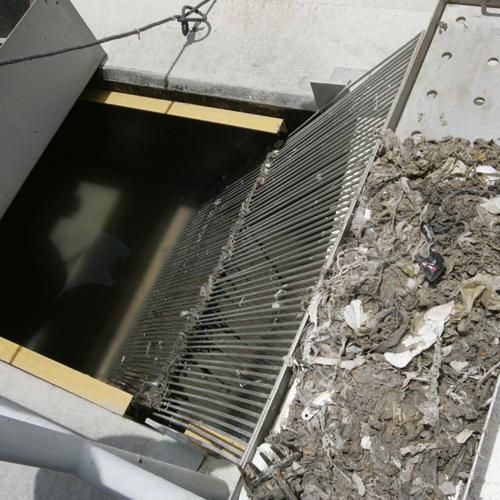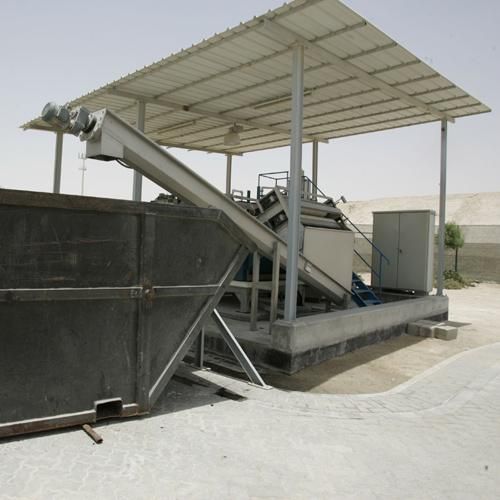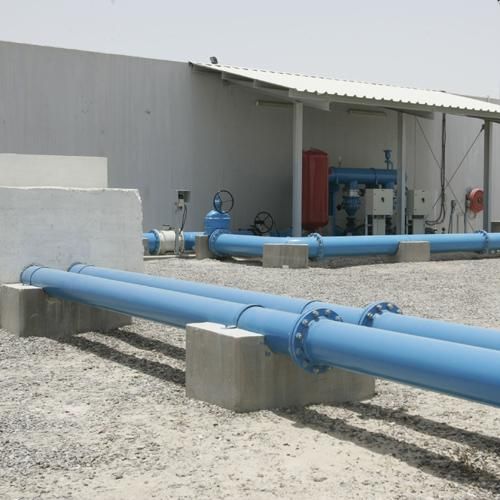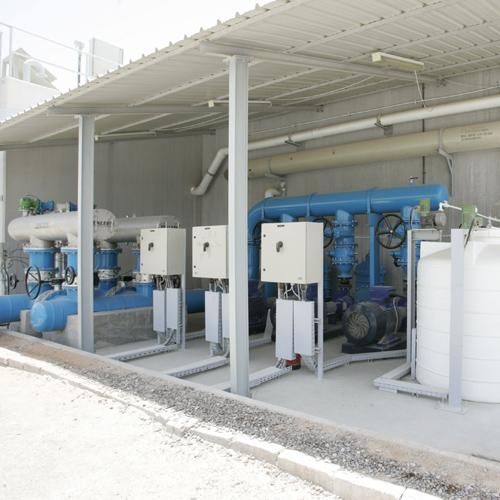Recycled water has become big business in Dubai, with a growing number of developments luring buyers with the promise of green grass, trees, golf courses and advanced cooling systems.
But with water shortages being a major issue in the Middle East, will sewage water ever stream from our kitchen taps? Unlikely, say experts.
When Singaporean officials drank treated sewage water in front of their counterparts in Dubai – illustrating its safety – the response from local officials was swift and unanimous: not here.
Although Dubai Municipality and private developers have invested heavily in treating waste water, industry experts are highly doubtful that treated sewage would ever replace desalinated and ground water as a source of drinking water.
“Sewage water can be very easily converted into drinking water,'' said Dr Clifford Randall, Professor Emiritus at Virginia Tech University, who recently made a visit to Dubai.
“It's more about the psychological aspects. People don't want to know they're drinking converted sewage water,'' he said.
However, according to Randall, properly treated sewage water contains less than a tenth of a per cent of contamination (under 1,000mg/litre) – less than desalinated seawater (33,000mg/ litre) on which the UAE greatly relies.
“Using sewage as drinking water will never happen,'' said a Municipality project engineer in the Drainage and Irrigation Department, who did not wish to be named. “If people came to know that they were drinking sewage, they'd surely not drink it.''
One of the few countries in the world to use waste water to supplement the state's water supply is Singapore.
In an effort to maintain its self-sufficiency, Singapore invested heavily in NEWater, which goes through a stringent purification and treatment process. NEWater is a brand name given to treated sewage water by Singapore Public Utilities.
After the sewage process is completed, NEWater is mixed and blended with reservoir water, then undergoes conventional water treatment to produce a drinkable liquid.
The Municipality official said the reasons sewage cannot be converted are both cultural and religious.
“Mosques have approached Municipality about setting up a water connection but once they knew it would be derived from sewage, they refused. They say it isn't clean,'' he said.
However, Shaikh Ahmad Al Qubaisi, a prominent Islamic scholar, told XPRESS that there is absolutely no problem with using purified sewage water for ablution bathing or even drinking.
“If the skin of an animal is considered unclean by its death and the process of taxidermy would then render the skin clean, then the same logic applies to purified sewage water where the treatment process is a thousand times more intricate and advanced.''
Mohammad Hijaz, General Manager of Eagle Electromech-anical, which runs a sewage plant at Arabian Ranches, said treated sewage water must first go back to the earth.
“It has to be released back into nature to enrich the ground. From there, it can be taken back as human use water,'' where it could be collected from a reservoir, he said.
This however, has not stemmed the brisk pace of business currently taking place in the sewage treatment industry.
Dubai Municipality is the main conduit for waste water usage throughout the city – buying and selling to various projects and developments for use in irrigation.
However, the industry has increasingly seen a surge in privatisation, with the Municipality unable to support all the sewage.
Hijaz, who has seen his company grow tenfold since 2000 says that the municipality initially had difficulty coping with the growth of Dubai, hence the privatisation of the industry.
“The central plant and network were not up to the level of development that has occurred in the last five years, and some investors were forced to build sewage plants because the Municipality was not ready to receive the sewage,'' he said.
Earlier this month, the Municipality signed an agreement worth Dh1.5 billion for the construction of a waste water treatment facility south-east of the Jebel Ali Free Zone capable of handling 300,000 cubic metres a day.
This will supplement the capacity of the existing plant in Al Awir and will be completed in three years, enough time for private companies to mushroom.
When the facility is completed, the sewage-treatment industry will mean big business for the Municipality, said Hijaz. And the question will be whether or not private companies will still be allowed into the market.
Flushed Away
At the Eagle Electromechanical sewage treatment station, the things found in the waste water have shocked engineers.
“We have found shirts, bras, mobile phones, pants and rocks,'' said Tarek Obaid, the mechanical engineer who overseas the site.
“We had to install a new bar screen because of this. Normally, this should be checked once a month, but here we collect 200-300kg every two to three days.''
Warming Effects
Dr Clifford Randall believes one of the greatest dangers that Dubai will face in the next 15 years is global warming. “By 2020, the effects will be massive and when global warming reaches its peak, Dubai could be flooded by sea water. Building dykes may be in Dubai's future.''
* Are you happy drinking treated sewage? Vote in our poll.
Your comments
I like what you guys said! It is totally true!
Anonymous, UAE
Posted: Jul 04, 2007, 19:25
Frankly spoken, why not make a agreement with the Greenlandic government about delivery of fresh bulk water. About 200-250 KM3 of ice and water is running into the ocean each year and it will continue to the end of this world. In Greenland we have 10.700.000 m3 drinking water per capita a year. I can't drink all that water... can you Sir? The International Polar Year 2007-2008 has about 170 different projects about "global warning", not one single project concerns about the real problem, ‘the waste water’ (ie the melting freshwater from the ice sheet) which will drown the entire world anyway if the current global warming continues to 2100.
Svend, Greenland
Posted: Jul 04, 2007, 19:25


